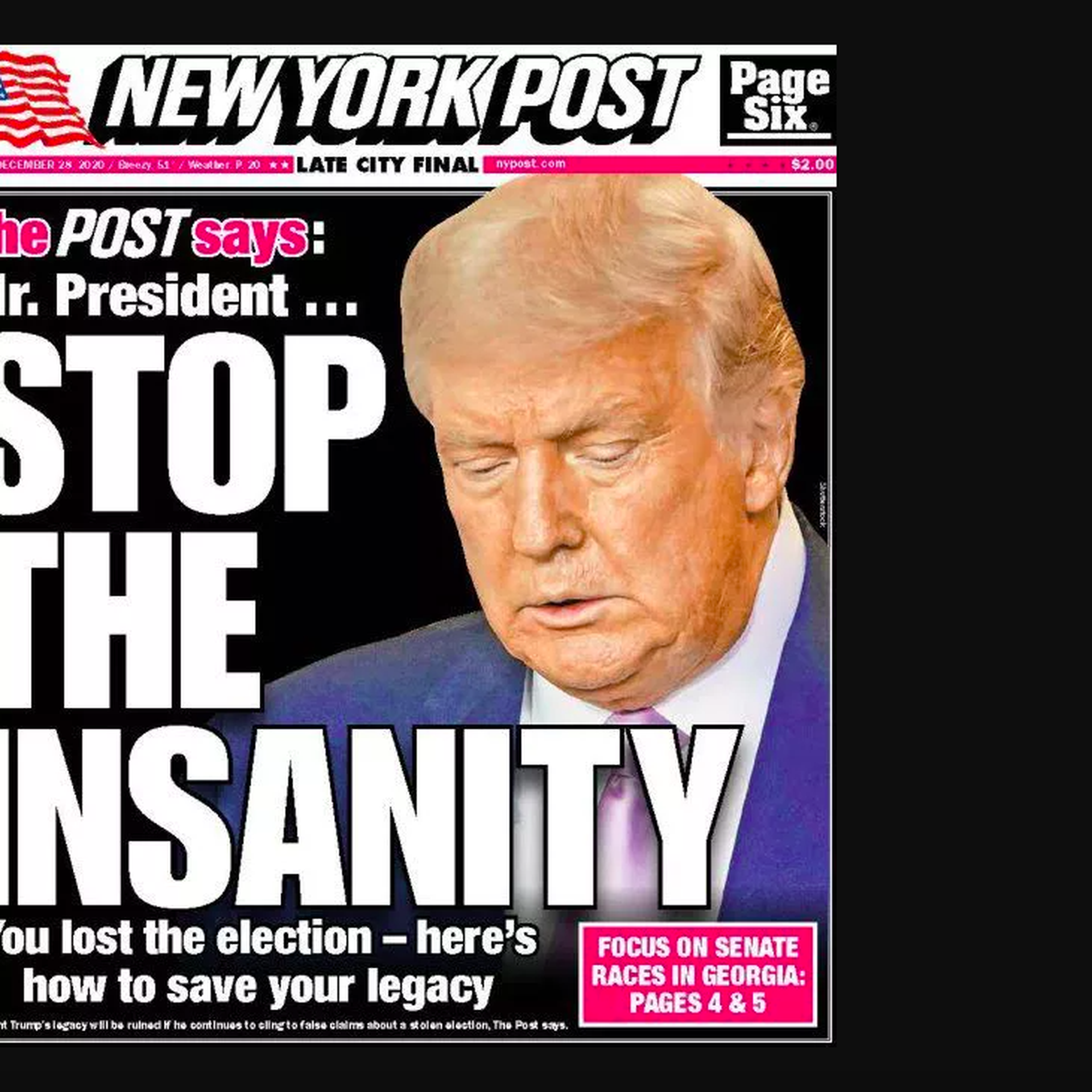Discussions surrounding the mental state of Donald Trump have been a prominent feature of his political career, encompassing a range of perspectives from mental health professionals, political commentators, and the public.
Claims and Counterclaims
Concerns about Cognitive Health: A number of neuropsychologists and psychologists have publicly voiced concerns about what they perceive as a decline in Trump’s cognitive abilities.
In his defense, Donald Trump has consistently asserted his mental acuity, famously describing himself as a “very stable genius.” Official reports from his White House physician have stated that he exhibits no signs of memory loss, neurological abnormality, or cognitive impairment. During his presidency, it was reported that Trump took the Montreal Cognitive Assessment (MoCA), a screening tool for cognitive function, and scored a perfect 30/30.
Psychological Assessments from a Distance: Beyond cognitive decline, some mental health professionals have suggested that Trump’s behavior aligns with certain personality disorders.
The Goldwater Rule and Ethical Debates
Public commentary on the mental health of political figures is a contentious issue within the psychiatric community, largely due to the “Goldwater Rule.”
The rule emerged after the 1964 presidential election when a magazine published a survey of psychiatrists on whether Barry Goldwater was psychologically fit to be president, to which he successfully sued for libel.
Political and Public Discourse
The debate over Trump’s mental state has also been a significant element of political and public discourse. Critics have pointed to his often-unconventional communication style, use of hyperbole, and challenges to established facts as evidence of a concerning psychological profile. His political opponents and some media outlets have frequently highlighted instances of apparent confusion or verbal missteps.
Conversely, his supporters often view his communication style as authentic and a rejection of political correctness. They may attribute criticisms of his mental state to political animosity and an attempt to pathologize a disruptive political figure.
It is important to note that without a formal clinical evaluation, any public discussion of a political figure’s mental health remains in the realm of observation and speculation. The complexities of personality, political strategy, and potential underlying health issues are difficult to disentangle from a distance, making definitive conclusions challenging.
The Question of “Insanity” and the 25th Amendment
The question of whether a president is “insane” and if the 25th Amendment could be invoked involves navigating complex medical, legal, and political territory. The term “insane” itself carries different meanings in each of these contexts, and any discussion of a president’s fitness for office necessitates a clear understanding of these distinctions.
Defining “Insanity”: A Multifaceted Term
Medically, the term “insane” is largely obsolete.
Legally, “insanity” is a specific concept used in criminal defense.
Politically, the term “insane” is often used rhetorically to criticize a political figure’s decisions, statements, or behavior.
Discussions Surrounding Donald Trump’s Mental State
Throughout his political career, Donald Trump’s mental state has been the subject of public discussion and speculation from various quarters, including mental health professionals, political commentators, and the media.
Some mental health professionals have publicly expressed concerns, often pointing to behaviors they view as indicative of certain personality traits or potential cognitive issues.
Conversely, supporters and allies of Donald Trump have dismissed these concerns as politically motivated attacks. They often point to his accomplishments and his self-described status as a “very stable genius.” Official White House physicians during his presidency stated that he was in excellent health, and he has touted his performance on a cognitive screening test.
These differing views highlight the challenge of assessing a public figure’s mental fitness from a distance and the politicization of such discussions.
The 25th Amendment: A High Constitutional Bar
The 25th Amendment to the U.S. Constitution provides a mechanism for the transfer of presidential power in cases of death, resignation, removal, or disability.
Legal and Procedural Aspects of Invoking Section 4:
The process for involuntarily removing a president from power is intentionally rigorous:
-
Initiation: The Vice President and a majority of the principal officers of the executive departments (the Cabinet) must declare in writing to the President pro tempore of the Senate and the Speaker of the House of Representatives that the President is unable to discharge the powers and duties of their office.
13 -
Immediate Transfer of Power: Upon this declaration, the Vice President immediately assumes the powers and duties of the office as Acting President.
14 -
Presidential Contest: The President can then submit a written declaration to the congressional leaders stating that no inability exists.
15 If they do so, they would resume the powers and duties of the presidency. -
Congressional Decision: If the Vice President and a majority of the Cabinet submit another written declaration within four days that the President remains unable to serve, the matter is then decided by Congress.
-
Supermajority Vote: Congress must assemble within 48 hours and has 21 days to vote.
16 A two-thirds vote in both the House of Representatives and the Senate is required to declare the President unable to serve, in which case the Vice President would continue as Acting President.17 If this two-thirds majority is not reached, the President would regain their powers.
Basis for Invocation:
The basis for invoking the 25th Amendment is a president’s “inability to discharge the powers and duties of his office.”
The threshold for invoking the 25th Amendment is exceptionally high, designed to prevent its use for political purposes.
–
The Evolving Concept of “Political Insanity”: From Medicalized Dissent to Modern Metaphor
The term “political insanity” is not a clinical diagnosis but a powerful and often contentious label used to describe a range of political phenomena, from individual actions to the behavior of entire societies. Its meaning has evolved significantly, originating as a medical concept to suppress dissent and now serving as a colloquial descriptor for political behavior that is perceived as irrational, counterproductive, or dangerously detached from reality.
A Controversial Medical Past
Historically, the concept of “political insanity” was wielded as a tool of political repression. In various regimes, individuals who expressed views contrary to the ruling ideology were diagnosed with forms of mental illness.
The Psychology of Political Irrationality
In a more modern and metaphorical sense, “political insanity” is often used to describe political behavior that appears to defy logic and self-interest. Political psychology offers several lenses through which to understand this perceived irrationality:
-
Cognitive Biases: Individuals are prone to a variety of cognitive shortcuts and biases that can lead to flawed political reasoning. Confirmation bias, for example, is the tendency to favor information that confirms pre-existing beliefs while ignoring contradictory evidence.
4 This can lead to political positions that are resistant to facts and logical persuasion. -
Motivated Reasoning: This is the tendency to process information in a way that is emotionally biased, aiming to arrive at a particular and preferred conclusion. In the political realm, this can manifest as voters or politicians clinging to beliefs that are emotionally satisfying, even when evidence suggests they are misguided.
-
Groupthink and Polarization: The dynamics of political tribes and polarization can foster an environment where extreme or irrational ideas are normalized and amplified. Within an insular group, dissenting opinions may be suppressed, leading to a collective conviction in ideas that appear “insane” to outsiders. As political polarization intensifies, the “other side” is often viewed not just as wrong, but as fundamentally irrational.
5
“Political Insanity” in Contemporary Discourse
In today’s political commentary, “political insanity” is a frequently used pejorative. It is employed to criticize a wide array of political actions and figures:
-
Policy Decisions: Policies that are seen as economically disastrous, socially divisive, or based on flawed premises are often labeled as “political insanity.” This rhetoric is used by commentators and political opponents to galvanize public opinion against a particular course of action.
-
Political Candidates and Leaders: The behavior and statements of political figures are sometimes characterized as “insane” to question their fitness for office or to highlight what is perceived as a departure from normal political conduct.
-
The Political Climate: The term is also used more broadly to describe a general sense of political chaos, dysfunction, and a breakdown of rational discourse. In this context, “political insanity” refers to a perceived societal condition where political processes seem to be driven by emotion, misinformation, and partisan fervor rather than reasoned debate and compromise.
Critiques of Using Mental Health Language in Politics
While the term “political insanity” can be a potent rhetorical device, its use is not without criticism. Invoking the language of mental illness to describe political opponents can be stigmatizing to individuals who experience actual mental health conditions. Critics argue that this practice can trivialize the complexities of both mental illness and political disagreement. Furthermore, labeling political adversaries as “insane” can shut down productive dialogue and contribute to the very political polarization it often seeks to condemn.
In conclusion, “political insanity” is a multifaceted term with a dark history and a complex present. While it lacks a formal definition, its usage points to a deep-seated concern with the role of reason, logic, and stability in the political sphere. Whether used to describe the calculated repression of dissent, the psychological quirks that drive political behavior, or the chaotic nature of modern politics, the concept of “political insanity” serves as a powerful, if controversial, lens through which to view and critique the world of politics.
–
Legal Insanity and the Presidency: An Examination of the Standard and Public Discourse
The question of whether a president can be deemed “legally insane” involves a complex intersection of legal standards and political realities. Legally, the term “insanity” has a specific definition within the criminal justice system that is not synonymous with a medical diagnosis of mental illness. There has been no formal legal proceeding in which Donald Trump’s sanity has been adjudicated, and therefore, he has never been found to be legally insane.
The concept of legal insanity is primarily used as a defense in criminal prosecutions.
-
The M’Naghten Rule: This is the most common standard in the United States.
2 To be found not guilty by reason of insanity under M’Naghten, a defendant must prove that, at the time of the offense, they were suffering from a “disease of the mind” to the extent that they did not know the nature and quality of the act they were doing, or if they did know it, they did not know that it was wrong.3 -
The Model Penal Code (MPC) Test: This standard, adopted by a number of states, holds that a person is not responsible for criminal conduct if, as a result of a mental disease or defect, they lack the “substantial capacity” to either appreciate the criminality of their conduct or to conform their conduct to the requirements of the law.
4 -
The Irresistible Impulse Test: Used in some states, often in conjunction with the M’Naghten rule, this test absolves a defendant of criminal responsibility if they were driven by an “irresistible impulse” to commit the crime, even if they knew it was wrong.
5
It is crucial to understand that these standards are applied in a courtroom setting, with extensive psychiatric evaluations and expert testimony. They are not metrics for casual or political assessment.
Public discourse surrounding Donald Trump’s mental state has been extensive, with a wide range of opinions expressed by mental health professionals, political commentators, and the general public.
During his presidency, Donald Trump’s physician stated he was in “excellent health” and that he “aced” a cognitive screening test known as the Montreal Cognitive Assessment (MoCA).
In summary, while there has been significant public and professional debate about Donald Trump’s mental fitness, the question of his legal sanity has never been formally addressed in a court of law. The standards for legal insanity are specific to criminal defense and have not been applied to him. Therefore, there is no legal basis to declare him “legally insane.”
–
Links

